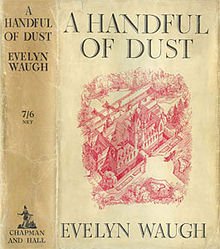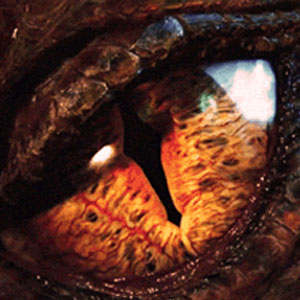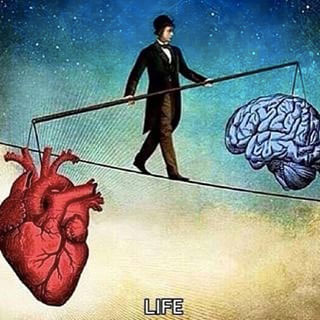A Handful of Dust lived up to my expectations of mirth. You may recall that I laughed out loud reading the first page, and there are many more such moments.
But I can also add that Evelyn Waugh’s A Handful of Dust is one of — if not the — most distressing book I’ve ever read. An alternative title might be, The Death of a Marriage.
The first part of the novel describes the grim detail of marital infidelity. I’m not talking about sex scenes. Waugh’s a better author than that. I’m talking about the passive-aggressive manipulation which confuses the innocent party, and the rationalisation and self-deception which afflicts the traitorous party. It is a compelling and excruciating portrait of infidelity, even in the midst of comic hilarity.
Halfway through this novel I realised it is probably semi-autobiographical. Evelyn Waugh’s wife and his best friend had an affair which most of his circle learned about before he did. In fact, he learned of the affair only when his wife left him. I think the suffering and humiliation Waugh endured is given masterful expression in A Handful of Dust. (In the aftermath, depressed and overwhelmed, Waugh swam out to sea one night intending not to return. But his suicide attempt was thwarted by a stinging jellyfish attack which forced him back to shore. Is it any wonder Waugh is a master of black humour?)
Nonetheless, although the death of the protagonist’s marriage is harrowing, the plot actually gets even more depressing. Waugh kills off one of the novel’s most attractive characters, and he subjects another to a torturous fate worse than death. Again, all in the midst of comic hilarity!
As every reader knows, the measure of a good book is the feeling which comes when you finish it. If you’re sorry that it’s ended, and wish there was more, and wander around desolate for a while, then you know you’ve read a good book. In the case of A Handful of Dust, I was glad it was finished, wished I’d never read it, and resolved to recommend it to nobody.
And yet, in the days since I’ve finished A Handful of Dust, my thoughts have returned again and again to the book’s characters and themes. That’s not the measure of a good book. That’s the measure of a great book — the sort of book you can and will re-read every decade or so.
So in the end I do recommend A Handful of Dust, whole-heartedly. I concur with its popular recognition as one of the greatest novels of the twentieth century. But I completely reject the suggestion that it is Waugh’s masterpiece. Brideshead Revisited and the Sword of Honour trilogy eclipse it.
The three titles have a great deal in common. They document and critique the decline of western culture and the rise of modernity in all its banality and viciousness. But where Brideshead Revisited and Sword of Honour extol Catholicism as a glowing exception, a bastion of order holding out against chaos, A Handful of Dust barely mentions religion. Its focus is secular humanism of the noblest kind — the kind exemplified in Charles Dickens. Nonetheless, this humanism is no bastion: it is exposed as deficient and unworthy. A Handful of Dust endorses the Christian tradition, but only implicitly.
I can understand why the secular reader would prefer A Handful of Dust. It shares many themes with Brideshead Revisited and A Sword of Honour, and the economy and richness of Waugh’s prose is a joy. Moreover, it makes no demands on the reader’s faith, or their view of the Catholic religion.
Yet what Waugh achieves in A Handful of Dust is perfected in his later novels, where the negative gives way to the positive. So I can’t imagine a Catholic reader anywhere who would prefer A Handful of Dust to his explicitly Catholic novels. But perhaps I’m wrong. I’d like to hear it if I am.






Father,
I agree that it is an excellent novel of comic tragedy.
I was wondering why it would appear on a Fr Hardon’s Catholic reading list. What are your thoughts?
Regards,
Frank
Trying to catch up on your blog, Fr John, have just read this terrific review. Must re-read Handful of Dust… I was unaware of the tragedy in Waugh’s marriage. The perpetrators of adultery will usuall try and shred the innocent party; one of the least attractive inclinations of our fallen nature.